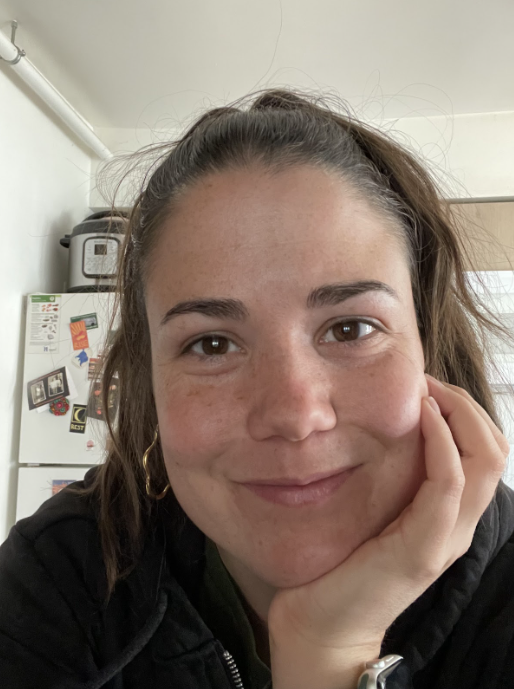Meet River Educator, Lora Pederson!
Describe a little about yourself and what you did before becoming a River Educator.
My name is Lora Pedersen. I live in St. Paul with my partner Adriana and our cat and dog. In my free time I like to read, weight lift, work on creative projects, and go camping. I taught 5th grade for four years before becoming a River Educator.
What have been some highlights for you so far as a River Educator?
Running the shelter building station at Hidden Falls was great, which involved watching kiddos work in teams to collect found materials to build their own shelters in the woods. It was fun watching the excitement and enthusiasm each team had towards their shelter.
Educator Andrew Bauld writes about outdoor education and schools that are coming back from the pandemic in a Harvard education web post titled, Make Outdoor Learning Your Plan A, that there is an ‘initiative [to push] for outdoor learning not simply as a response to the current pandemic, but [as] a long-term solution to many of the inequities systemic in traditional academic settings.’ How would you respond to that statement given your background in education here in the Twin Cities?
As a former 5th grade teacher, I think there needs to be less emphasis on learning trivial learning targets. Historically, education has been taught with an expectation for students to just memorize information rather than engage students in the actual act of learning. This style of learning has a detrimental effect on students, and there are studies showing that rote memorization is even more prominent in exploited communities.
There is more push in education to teach students in expansive ways, including not only honoring the wealth of knowledge students bring on their own but also with engaging students in critical thinking, problem-solving, and interest-based learning. I believe this sets students up to build positive learning identities which in turn brings more opportunity and joy to learning.
All of this to say that outdoor learning is so necessary! It authentically engages students in the scientific method as students contend with their surroundings. I think nature is an inherit part of who we are as human beings and there is just a profound excitement and joy that kiddos have when they are engaging with it. Why wouldn’t we want more of that?
How would you describe the importance of the programs offered by the Mississippi National River and Recreation Area?
These programs provide students authentic learning opportunities to engage with the natural world around them. They get to learn by doing, interacting, and asking questions while trying to figure out answers. Also, it’s fun, and learning should be joyful.
In what ways do you get out and enjoy the park?
I love visiting the river. I will often go on hikes or walk my dog along the river.
Any recommended resources for educators wanting to further their work with students and the outdoors?
I think for those of us who are not Indigenous, it’s important to acknowledge the ancestral, current, and future home of the Dakota people when we engage with the land. It’s important that as educators we are acknowledging and teaching this to our students. Some acknowledgement resources I would recommend include:
Another great organization doing great work with students and outdoor learning is Belwin Conservancy. There is also the Schoolyard Garden Conference.
I also like to engage students in purposeful learning. I think there are a lot of current events involving nature and the need to conserve clean air and water. Engaging students in current events such as the fight for the East Phillips Urban Farm or the water protectors fighting Line 3, provides authentic and purposeful learning opportunities in research and writing as a means for advocacy.


